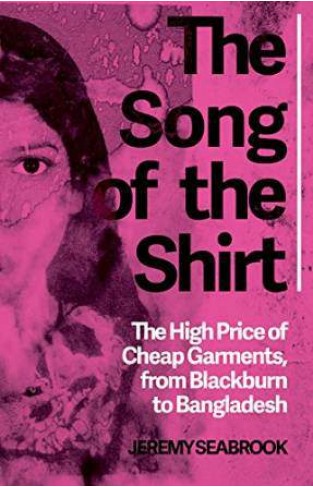Oh, Men, with Sisters dear!
Oh, Men, with Mothers and Wives!
It is not linen you're wearing out,
But human creatures' lives!
Stitch - stitch - stitch,
In poverty, hunger and dirt,
Sewing at once, with a double thread,
A Shroud as well as a Shirt.
-from "The Song of the Shirt" by Thomas Hood (1843)
In April 2013 Rana Plaza, an unremarkable eight-story commercial block in Dhaka, the capital of Bangladesh, collapsed, killing 1,129 people and injuring over 2,000. Most of them were low paid textile workers who had been ordered to return to their cramped workshops the day after ominous cracks were discovered in the building's concrete structure.
Rana Plaza's destruction revealed a stark tragedy in the making: of men (in fact mostly women and children) toiling in fragile, flammable buildings who provide the world with limitless cheap garments - through Walmart, Benetton and Gap - and bring in 70% of Bangladesh's foreign exchange.
In elegiac prose, Jeremy Seabrook investigates the disproportionate sacrifices demanded by the manufacture of such throwaway items as baseball caps and sweatshirts. He also traces the intertwined histories of workers in what is now Bangladesh, and Lancashire. Two hundred years ago the former were dispossessed of ancient skills and their counterparts in Lancashire forced into labour settlements; in a ghostly replay of traffic in the other direction, the decline of Britain's textile industry coincided with Bangladesh becoming one of the world's major clothing exporters. The two examples offer mirror images of impoverishment and affluence. With capital becoming more protean than ever, it won't be long before global business, in its nomadic cultivation of profit, relocates mass textile manufacture to an even cheaper source of labour than Bangladesh, with all too predictable consequences for those involved.












